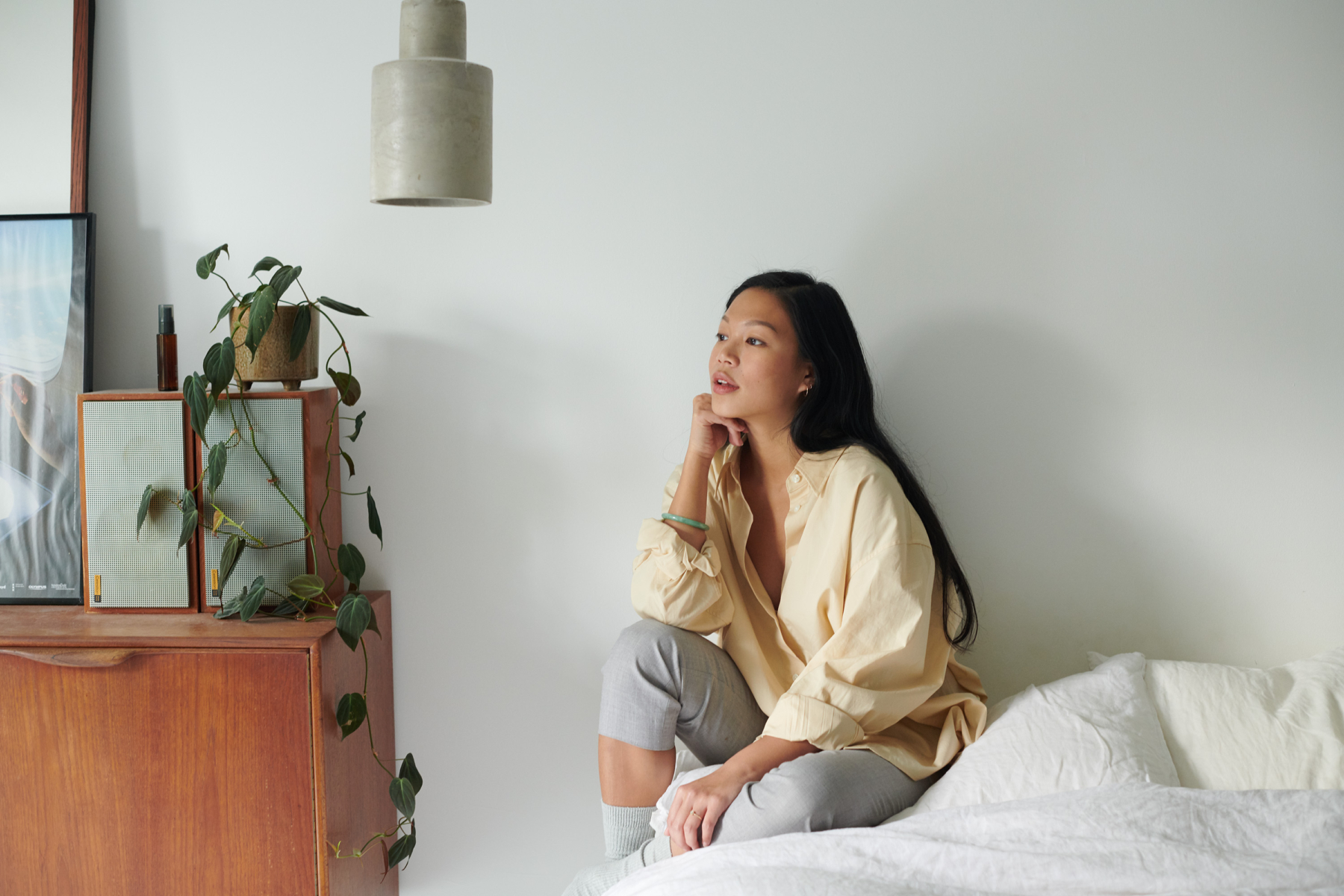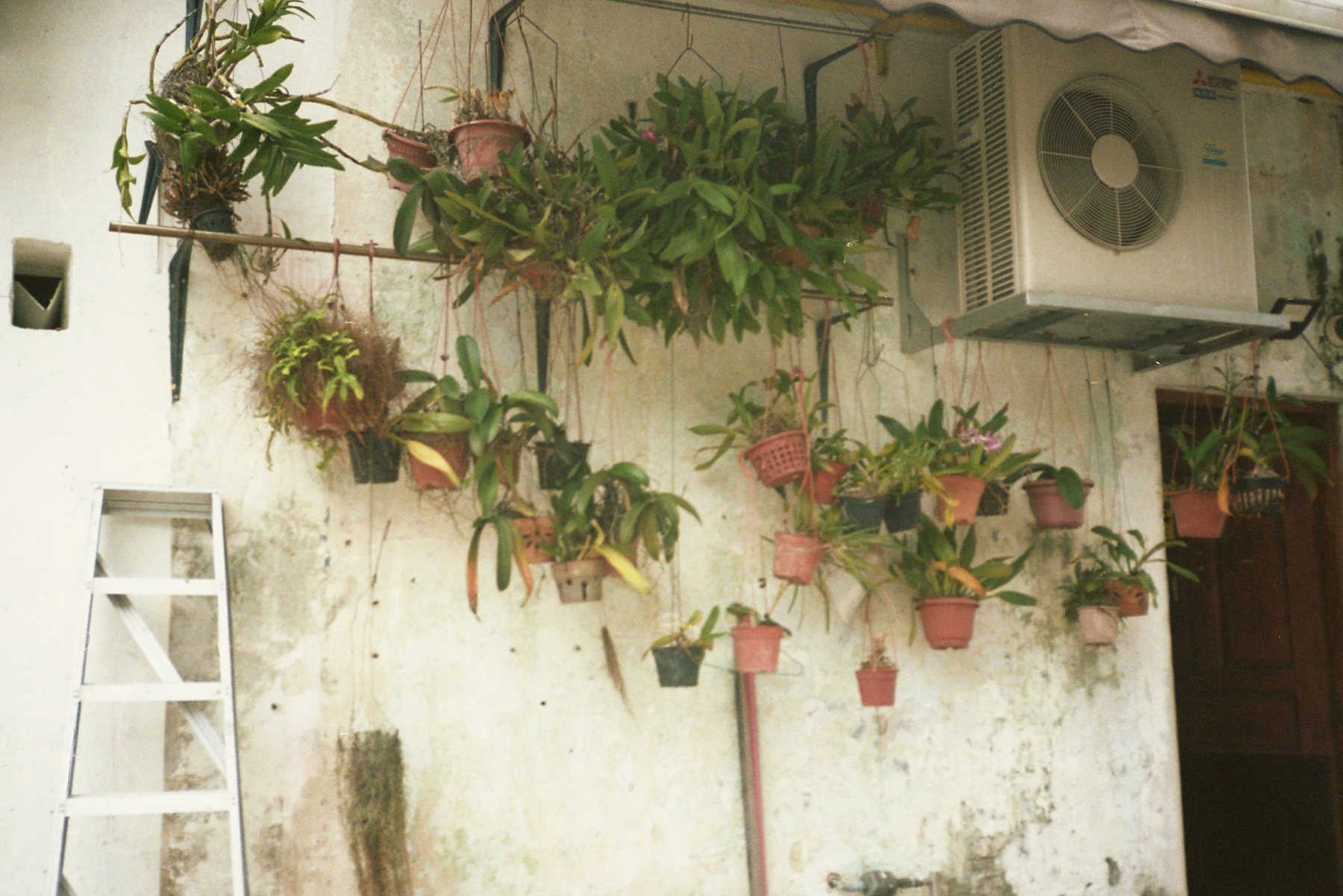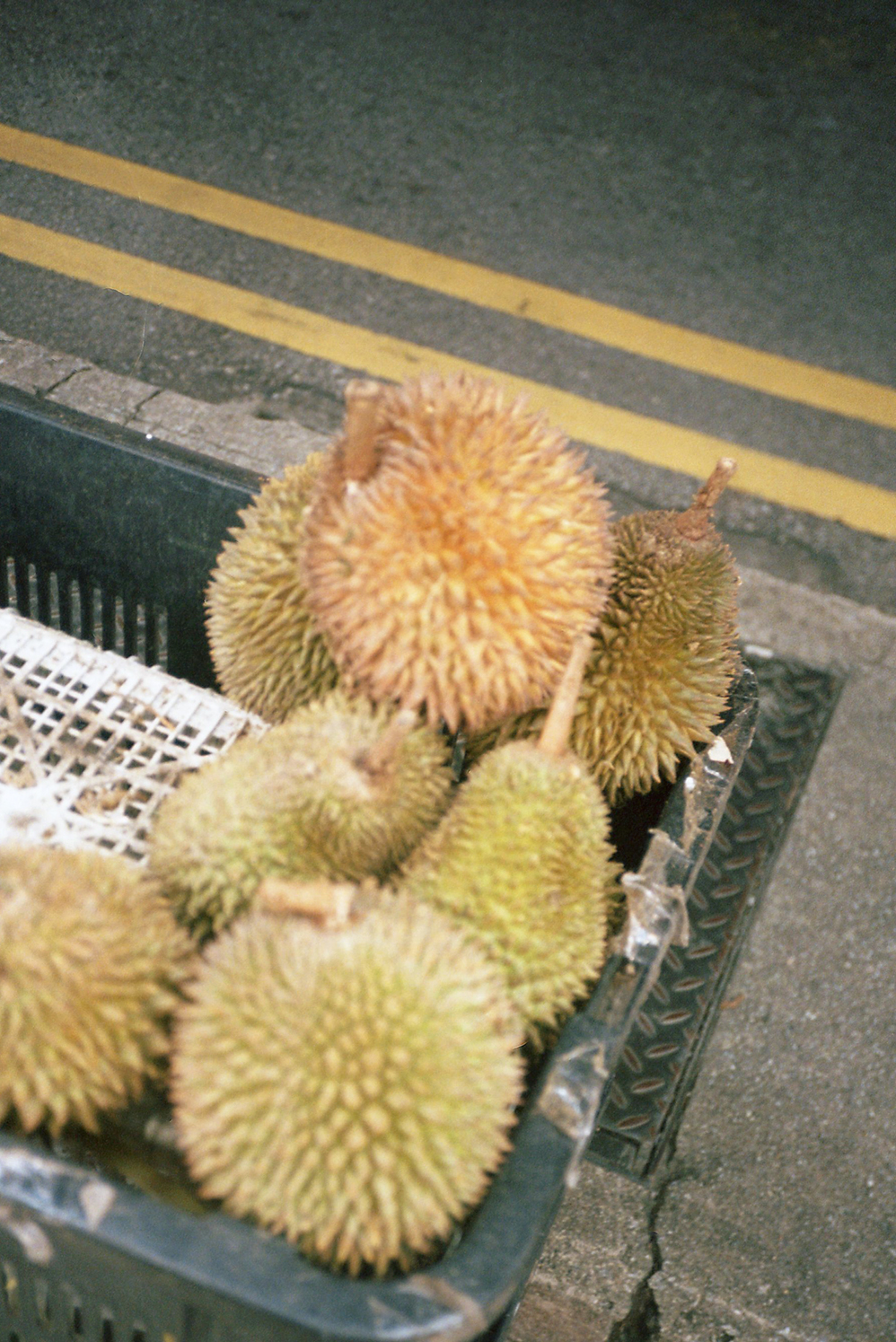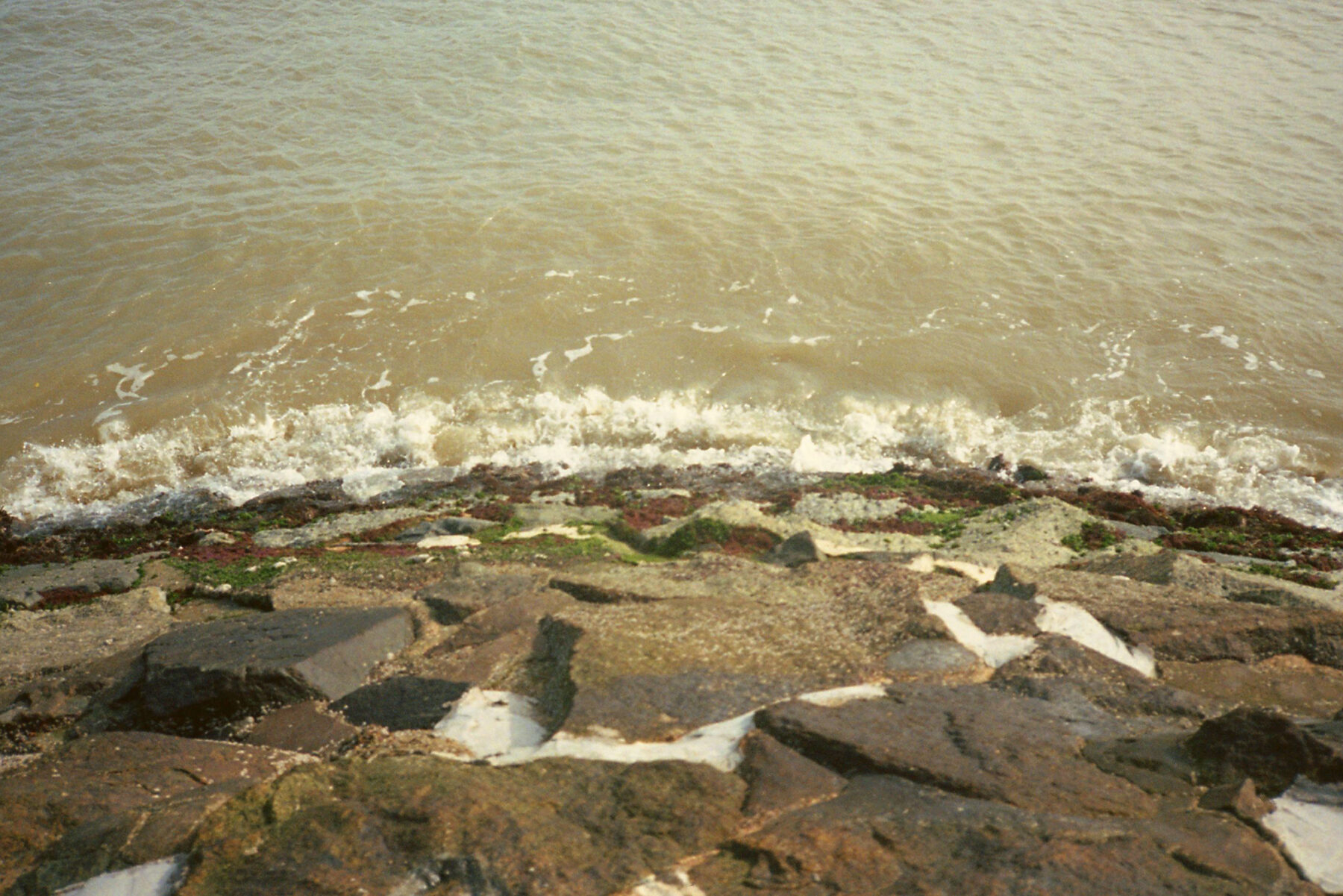The London-based artist subverts stereotypes of Asian women with subliminal visuals.
It’s a mild October morning in London, one where the sun blazes through the almost-bare tree branches, and I find Elizabeth Lee sitting outside a cafe on Broadway Market eating salty French fries and sipping on a beer. Unexpected? Perhaps, but I sense that’s exactly how the Singapore-born, London-based photographer would like to be depicted. In her growing body of work she challenges prescriptive stereotypes of East and Southeast Asian women. To put it simply: in order to change perceptions, Lee takes the lens into her own hands, shifting the Western gaze.
“I was extremely frustrated here [in the UK] with my experiences,” she says. “First of all, as a woman, second of all, a woman of color, and thirdly, as an Asian woman. There are all these intersecting points that make you kind of a target,” she says, belting her brown winter coat over a summery broderie anglaise top. “I’m not discounting that no other women get sexually harassed on the streets but this was my experience and I knew that other people like me were experiencing this, too. I never got that in Singapore so I wanted to explore it further.”
This profile is part of Visually Speaking, a content collaboration of Unseen and Friends of Friends. Learn more about the partnership at the end of this story.

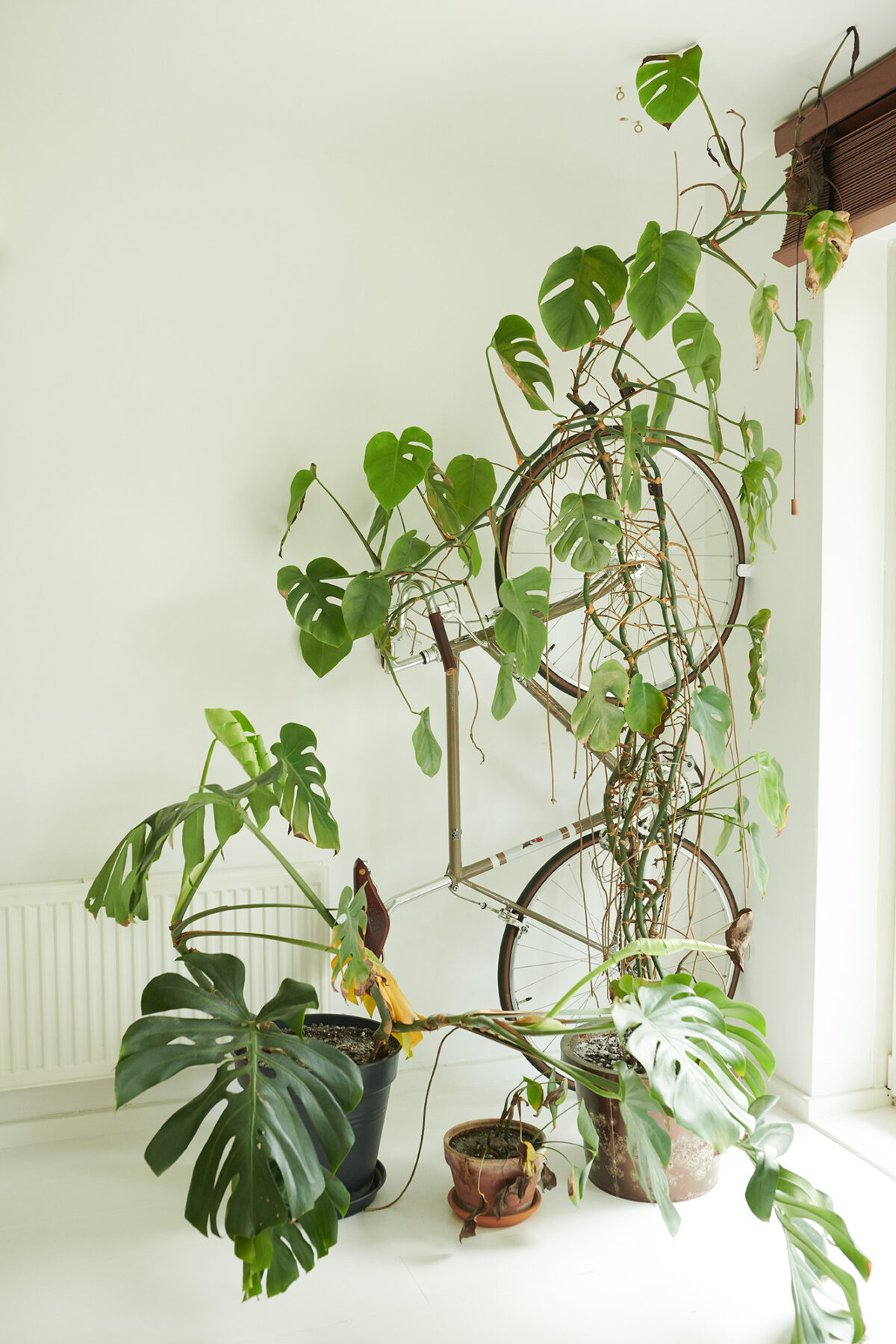
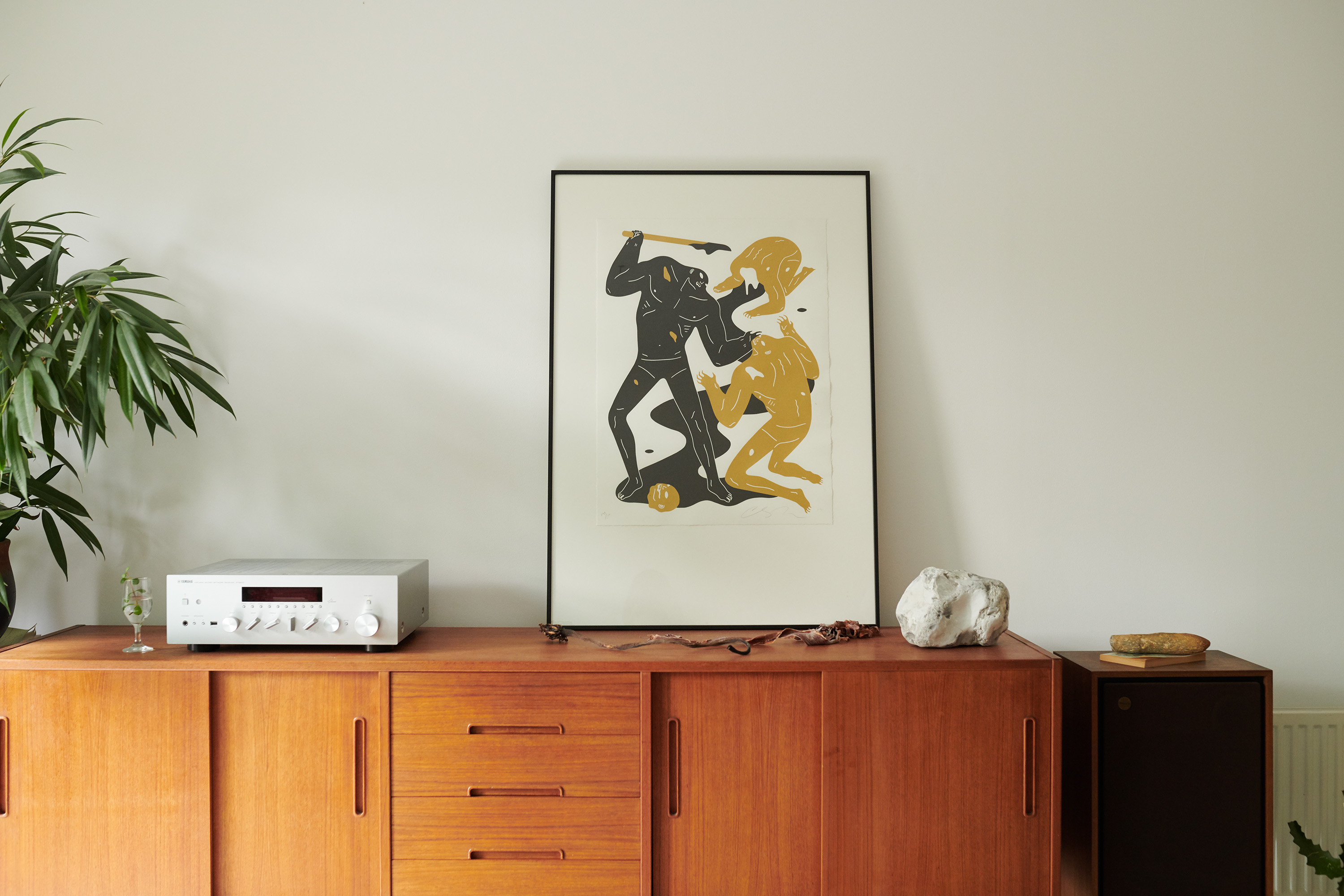

“Growing up I felt my heritage was rejected.”
After graduating from UAL with a BA in Creative Direction, Lee further developed her interest in photography, remaining in the capital to complete a Masters in the subject. “I started out with notions of belonging and identity when I was fresh out of my degree,” she explains. “I really wanted to discover my identity, especially where I am positioned in Western Europe—that was something I just really needed to get out.”
Lee’s initial investigation, fueled by many conversations she began to have with “othered” Asian women in London culminated in XING, a growing platform that empowers both artists and their subsequent audience to explore Asian female identity. “I was researching other artists who were addressing these issues of sexuality, representation, the same issues I was drawn to,” she says. Working with eight photographers and two writers, XING published its first photobook in 2017. For Lee’s part, she began researching her own personal history. “I talked to my family but everything is from their memory so I wanted to turn to other sources and literature was one of them,” she says. “It was only after reading Joseph Conrad’s Youth that I really understood the kind of language that is used to describe a lesser-known society or lesser-known people.”
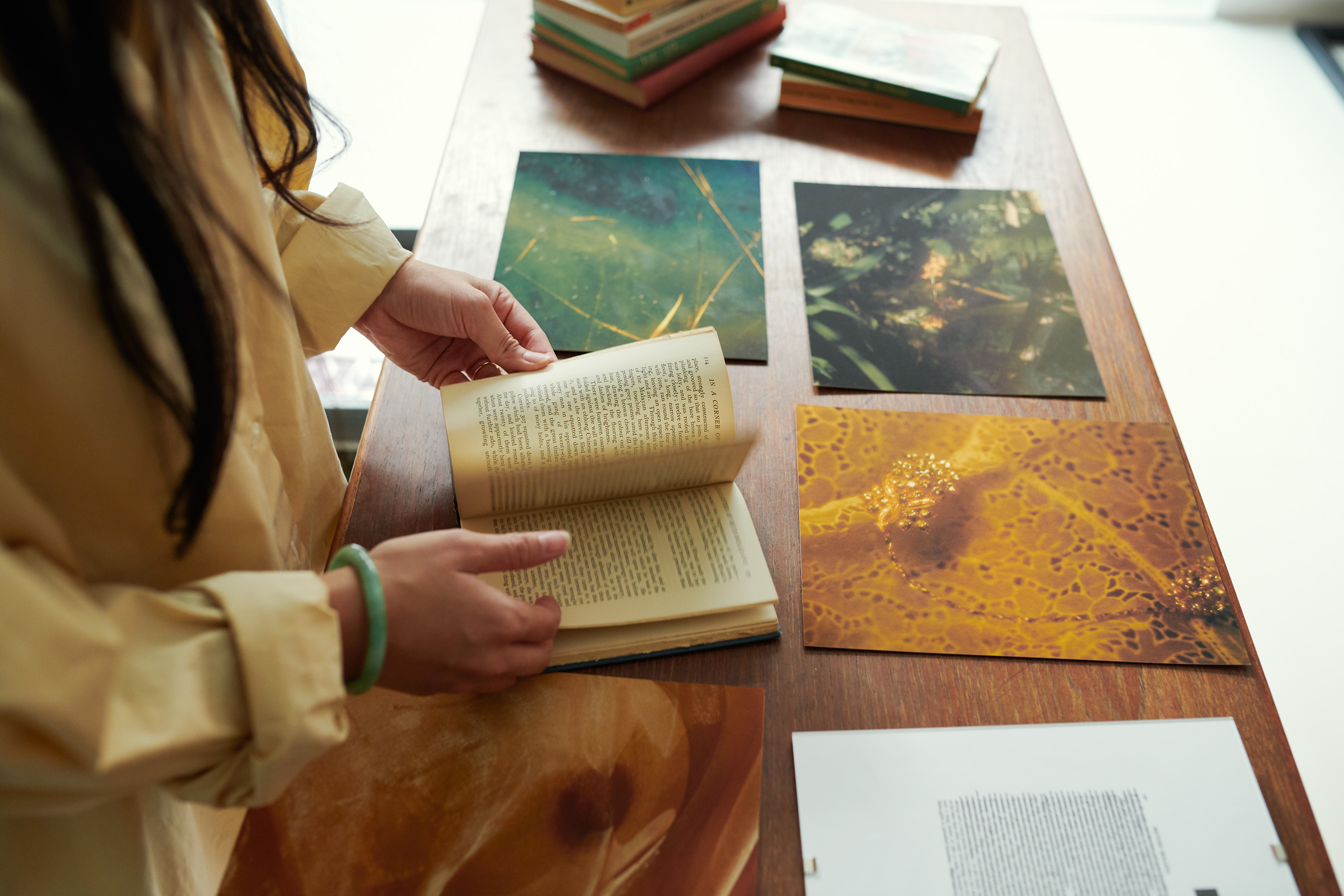
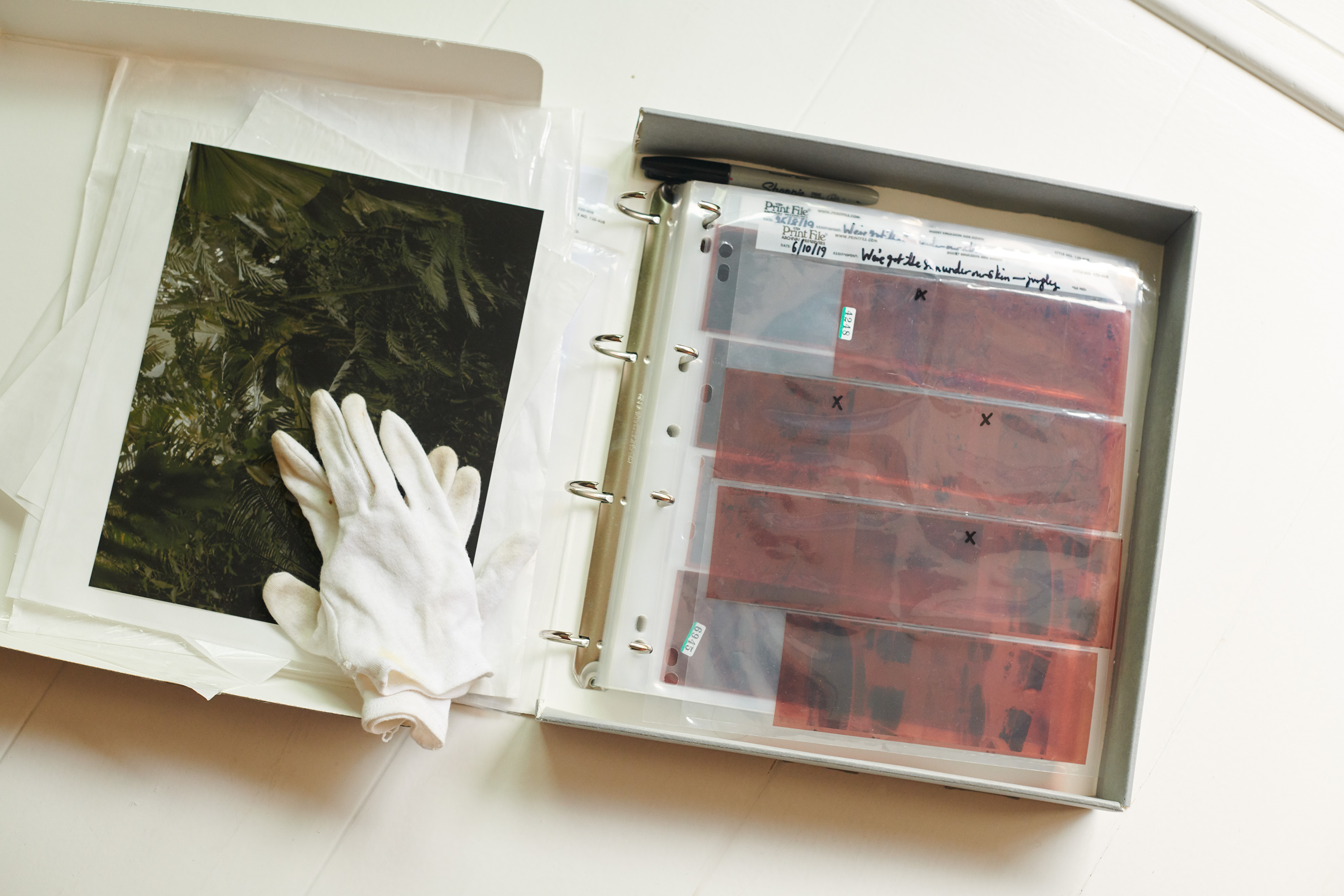
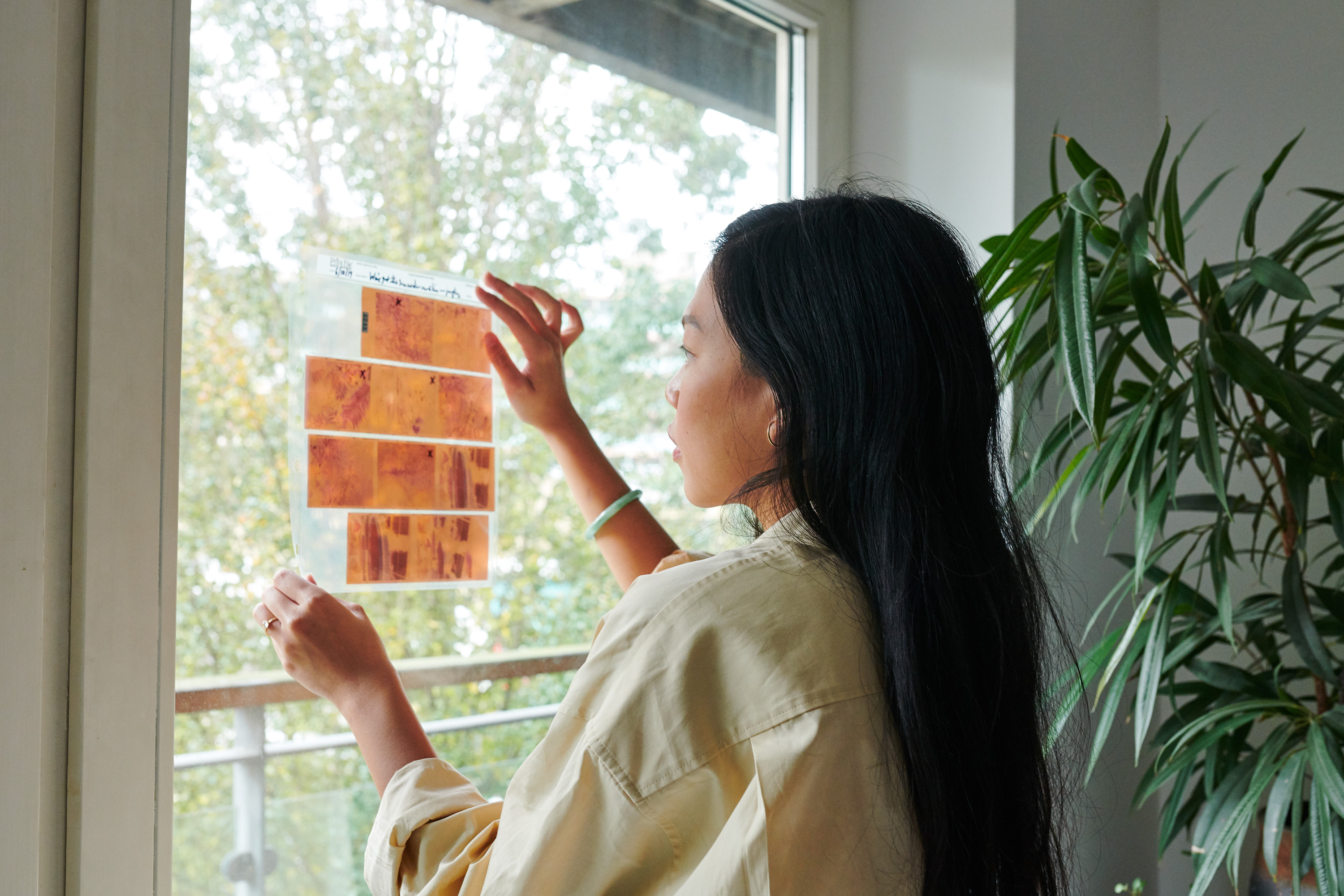

Later that day, Lee sends me an extract from Youth to further demonstrate how the technicality of language and Western perception has been represented in history.
“A puff faint and tepid laden with strange odors of blossoms, of aromatic wood, comes out of the still night—the first sigh of the East on my face. That I can never forget. It was impalpable and enslaving, like a charm, like a whispered promise of mysterious delight.” – Youth, Joseph Conrad, 1898
“I was very interested in the way another culture was being constructed and I wanted to see how that has influenced my view of my people and my land. And I think it has.” Imbued in many of these historical texts written by men (Conrad is just one example) are exoticized and romanticized views, the rose-tinted visitor writing notes from abroad, if you will. “It’s interesting because I tend to romanticize parts of my culture, too. Growing up I felt my heritage was rejected. Singapore, while in Asia, is a very Western city and I was always taught to look westwards,” she says, her narrow sunglasses shielding the midday glare. “I found myself reading all these texts about Malaya and kind of exoticizing my own country and my own heritage and…,” she stresses, taking a breath, “I think that’s fine and it happens a lot.”
Lee’s ongoing series, titled ‘We’ve got the Sun Under our Skin’ intelligently explores these central human issues of identity and belonging, but also takes strides to dispel any exoticized image of a tropical land and its people. “The photographs and texts illustrate the effects that colonial literature has on modern identity and the construction of the Other.” Lee chose to shoot all the photographs in the UK, not Singapore, explaining that, “I like playing with people’s ideas of representation.” Her visuals sit alongside historical excerpts from literature, highlighting a way of seeing we may have unconsciously digested. “I really wanted to tap into reversing the gaze and bringing the gaze back onto the soil here because there’s so many romantic visions of the tropics,” she says, eating a now-cold French fry from her plate. “Tropicality is one thing in itself, but there’s also another thing in the way that you fetishize and look and read something that you have colonized. As an imperial nation, it’s ingrained, this sense of entitlement. That really frustrated me in the writings.”
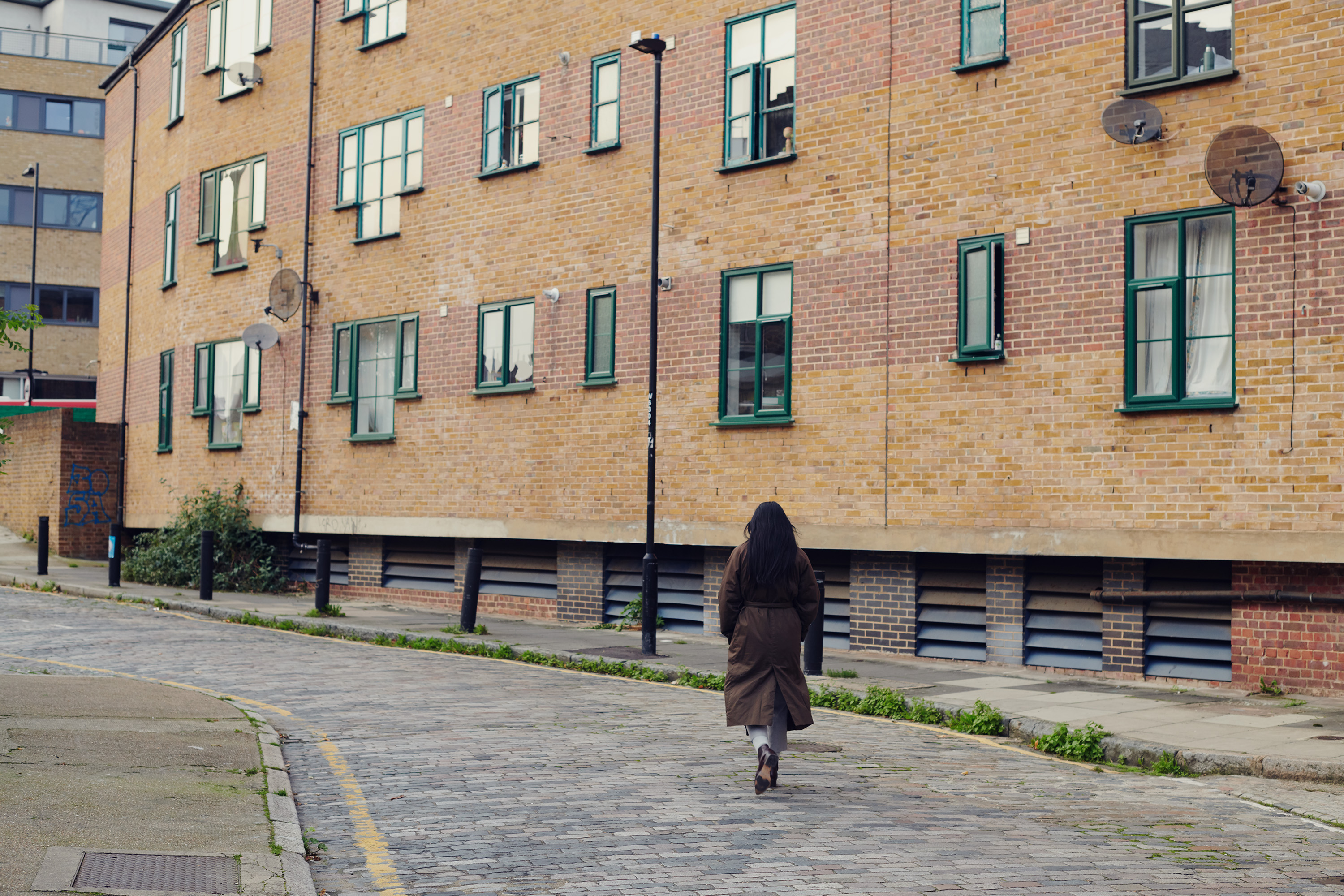

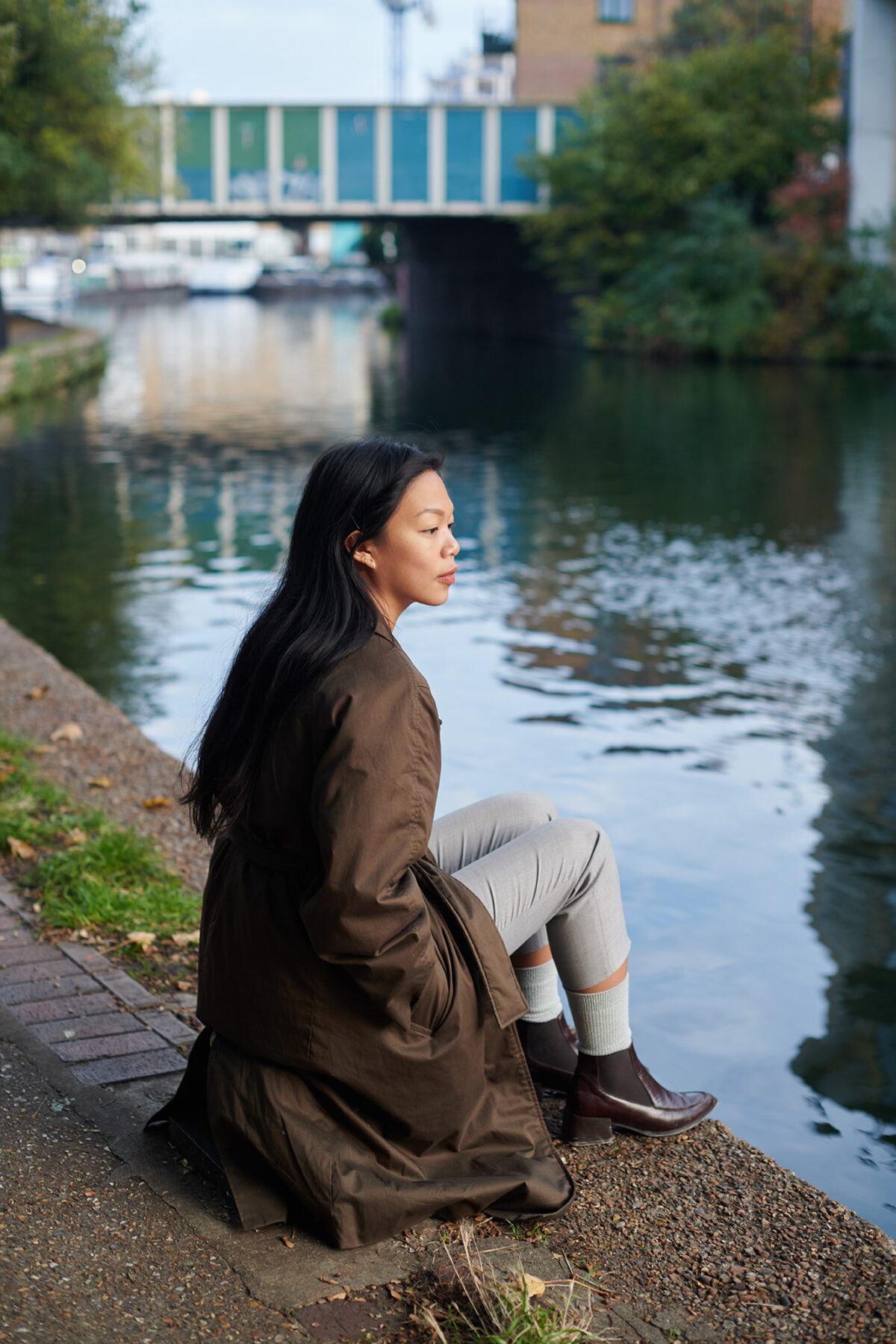
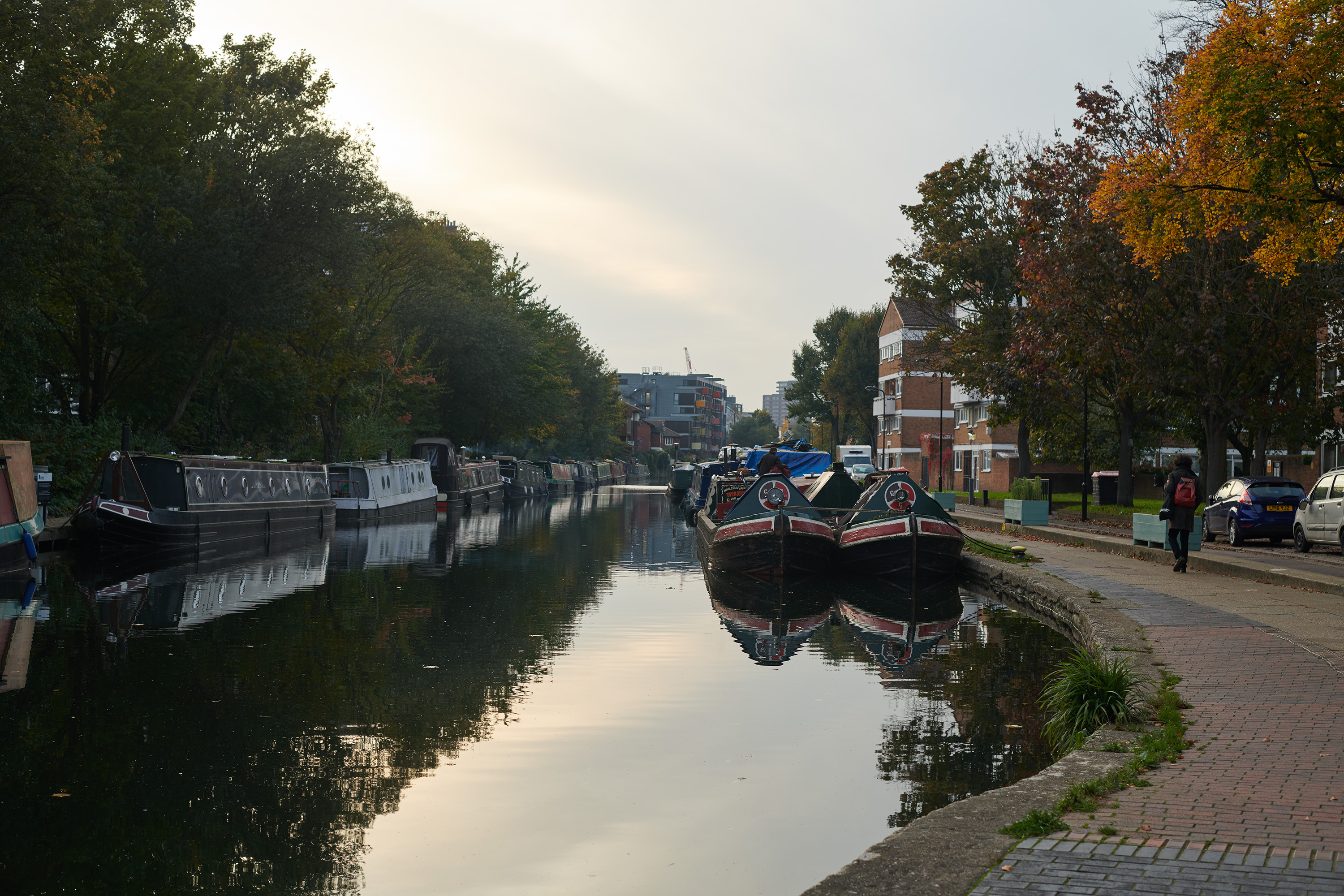
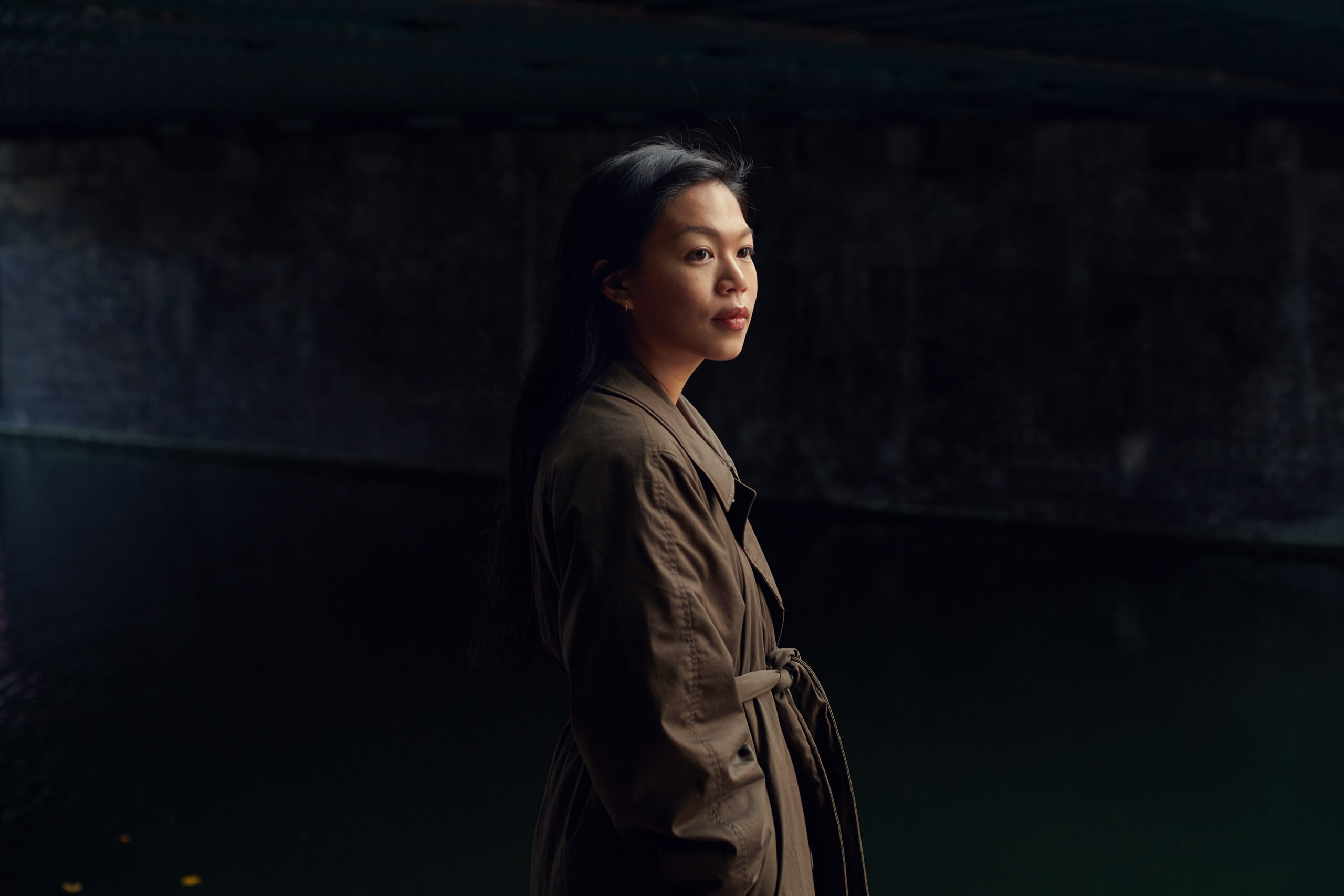
“I like playing with people’s ideas of representation.”
Lee’s photographs range from blooming flowers in a forest, the dappled light and evergreen foliage giving no clues to the geography of the shot, to a transparent, rippling sheath of wet fabric draped over a single breast. While the corresponding texts from 19th to 21st-century travelogues offer one vision, so in turn do Lee’s images, which, “shed light, demystify, and subvert the orientalist gaze echoed throughout the writings.” But it would be amiss not to touch on the inherent beauty in Lee’s images, because each standalone photograph is arguably very beautiful to look at. Can the two go hand in hand? “I believe an image can be beautiful but it can also address a lot of personal issues that we need to talk about. What really pushes me is to really explore those subtleties,” she says.
While Lee doesn’t think of herself as an activist, and doesn’t want to offer her opinion, the work that she’s creating is fast becoming a rich tapestry in subversion. “I’m really interested in slow violence and the way it creeps under society, it doesn’t really show itself but you can feel its force. And I think that’s something that really drives me, to really subvert these forces and bring them to the fore and shed light.” Lee’s practice is progressing from still photography to film—an area where her words and visuals can collide: “I’ve been thinking about a new body of work and I really want to explore moving image, something that’s lyrical and narrative-driven in my practice, that to me is a big step. I think right now is the time to try something else.”
Elizabeth Gabrielle Lee is a London-based, Singapore-born photographer whose work explores issues of sexuality, representation and identity and aims to subtly shift the Western gaze. Explore her work in our photo essay capturing facets of her Singaporean heritage.
This profile is part of Visually Speaking, a content collaboration of Unseen and Friends of Friends. Exploring image production as a socio-political tool to uncover unseen realities, the series eschews links to fast and constant image production that the digital age undeniably promotes. Through intimate profiles, the series presents four established and emerging photographers who honor a slow process, unfolding their daily lives and creative practices. Whether they explore their own personal and cultural histories, investigate societal issues, or turn to loved ones, they uniquely differ in their ways of working and the realities they are influenced by.
Text: Andie Cusick
Photography: Tina Hillier, Elizabeth Gabrielle Lee
